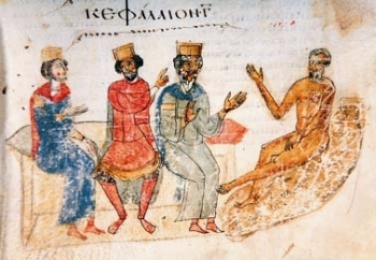Spiritual Sunday
Dan Clendenin of the blog Journey for Jesus has an excellent essay on The Book of Job, one of today’s Old Testament readings. He concludes it with a simple but powerful poem by the 19th century author Mary Elizabeth Coleridge.
Job has done nothing to deserve the suffering he undergoes, but his so-called friends can’t admit this. They feel compelled to find a causal relationship between Job’s misery and his behavior. If he is suffering what appears to be God’s wrath, he must have done something to bring it upon himself—just as, when life was good, he must have done something to deserve that as well.
Seeking to find reasons for such suffering can be a defense against the seeming senselessness of life. We tell ourselves that there’s something we can do to avoid suffering because we can’t bring ourselves to acknowledge our powerlessness. Job’s friends may seem to care for him but they are in actuality voicing their own need to be reassured.
Clendenin uses Job to warn against, amongst other things, prosperity theology, and I think he’s right. I’ve long wondered how certain American Christians can be fans of the control freak Ayn Rand, and seeing them as Job’s friends makes sense. Rand herself may have been an atheist but she has numerous Christian followers in the United States, who want the control that she promises, even as they also want to abandon themselves to God. Here’s Clendenin:
[T]he central lesson of this ancient story includes a most contemporary application. Many television preachers and books teach that God wants us healthy, wealthy, and wise (if you send them your money). Job exposes that lie. In his book Forty Acres and a Goat, Will Campbell derides such teachers as “electronic soul molesters.”
Genuine faith doesn’t manipulate God for material gain, fear of punishment, or avoidance of unjust suffering.
To accentuate his point, Clendenin then quotes Coleridge’s poem:
After Saint Augustine
By Mary Elizabeth Coleridge
Sunshine let it be or frost,
Storm or calm, as Thou shalt choose;
Though Thine every gift were lost,
Thee Thyself we could not lose.
The poem functions as a prayer. God’s peace awaits us as soon as we stop thrashing around in our fears.


